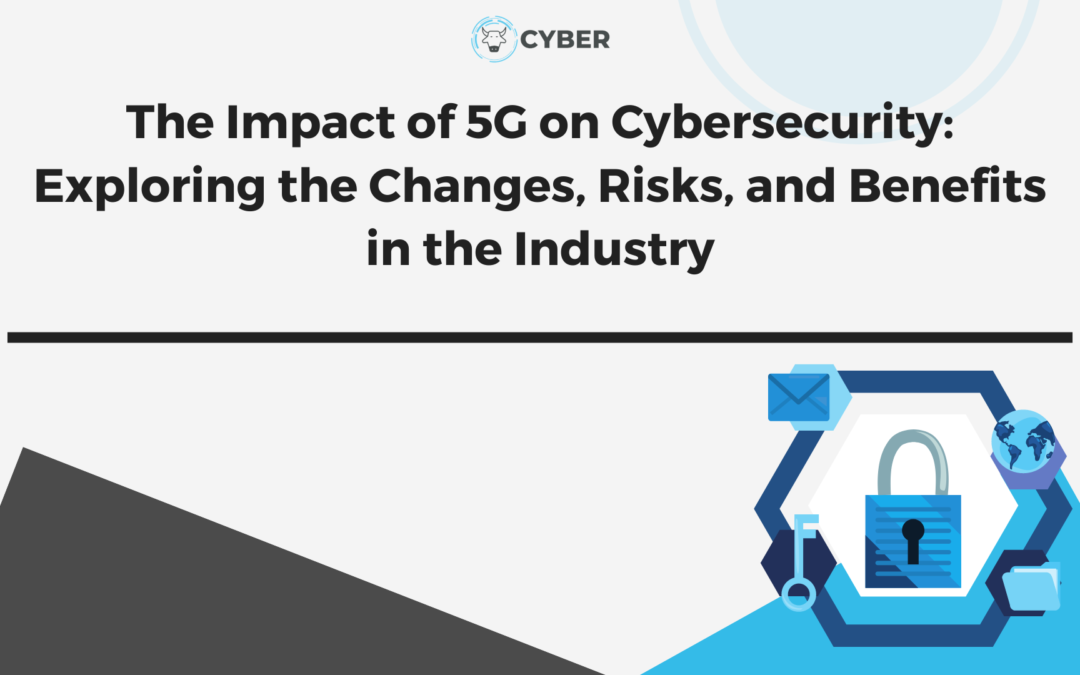As 5G technology continues to roll out across the UK, it’s important to understand how this new era of connectivity will impact cybersecurity. With faster speeds, lower latency, and a greater number of connected devices, 5G is set to change the way we live and work. But with these changes come new challenges, especially in the realm of cybersecurity.
5G and Its Impact on Cybersecurity
The arrival of 5G is transforming our digital world as we know it. From healthcare and manufacturing to transport and entertainment, nearly every sector is poised to benefit from the increased speed and connectivity that 5G offers. But as we welcome these advancements, it’s crucial to consider the impact on cybersecurity.
What Is 5G?
5G, or the fifth generation of wireless technology, promises a more efficient and reliable network. It operates on higher frequency bands, which means it can handle more data and deliver faster speeds. This opens up possibilities for a range of applications, including augmented reality, autonomous vehicles, and smart cities.
Why Cybersecurity Matters More Than Ever
As 5G becomes the new norm, strong cybersecurity measures are more important than ever. The enhanced speed and connectivity of 5G networks also mean that cyber threats can spread more quickly, making it harder for traditional security measures to keep up. The rise of the Internet of Things (IoT) devices within the 5G ecosystem further complicates the cybersecurity landscape.
How 5G Is Changing Cybersecurity
Faster Connections, Faster Threats
While 5G’s speed offers clear benefits, it also means that cyber threats can propagate more quickly. This poses a challenge for existing security measures, which may struggle to keep up with the pace of attacks in a 5G world.
A Larger Attack Surface
With more 5G-enabled devices and increased data traffic, there’s a significantly larger attack surface for cybercriminals to exploit. This requires cybersecurity professionals to rethink how they protect networks, data, and infrastructure.
More IoT Devices, More Security Challenges
The integration of IoT devices into 5G networks brings a host of security issues. These devices often have limited processing power and storage, making them easier targets for cybercriminals. The sheer number of these devices also makes securing the network a more complex task.
The Risks of 5G in Cybersecurity
Bigger, Bolder Cyber Attacks
The speed and capacity of 5G networks could lead to larger-scale cyber attacks, such as distributed denial-of-service (DDoS) attacks. These attacks could overwhelm network resources, causing widespread disruption.
New Vulnerabilities in Network Infrastructure
As 5G infrastructure is rolled out, it introduces new vulnerabilities that could be exploited by cybercriminals. From the radio access network to the core network, each part of the 5G architecture presents potential entry points for attackers.
Privacy Concerns
The increased data capacity of 5G networks means more personal and sensitive information is being transmitted than ever before. This raises serious concerns about data privacy and the potential for unauthorised access to sensitive information.
The Benefits of 5G for Cybersecurity
Stronger Security Protocols
5G technology allows for the implementation of advanced security protocols, such as network slicing and secure network function virtualisation. These measures can help protect against cyber threats more effectively.
Better Threat Detection and Response
With 5G, advanced AI and big data analytics can be integrated into networks, improving threat detection and response times. This means cybersecurity efforts can be more proactive and efficient.
Innovating in Cybersecurity
The shift to 5G offers opportunities for innovation in cybersecurity solutions. From AI-driven threat intelligence to advanced threat detection and secure communication protocols, 5G could lead to more robust and trustworthy digital ecosystems.
As we continue to embrace 5G, it’s clear that both the risks and rewards for cybersecurity are significant. By staying informed and adopting the latest security measures, businesses and individuals can navigate this new landscape with confidence.
TL;DR:
The advent of 5G technology brings both challenges and opportunities for cybersecurity. While the expansion of the attack surface and the potential for larger-scale cyber attacks pose significant risks, the enhanced security protocols, improved threat detection, and opportunities for innovation in cybersecurity solutions offer promising avenues for mitigating these risks.
It is imperative for businesses and individuals to adapt to the changes brought about by 5G by implementing robust cybersecurity measures, staying informed about the evolving threat landscape, and investing in advanced cybersecurity solutions to safeguard their digital assets.
As we continue to embrace the transformative power of 5G, it is essential to prioritise cybersecurity to ensure the confidentiality, integrity, and availability of our digital infrastructure and data.
For more information, take a look at:
- Black Hat Security Conference
- Advanced AI Technology
- Air Marshal Edward Stringer
- Analytics Social Media
- AI Big Data Expo
- CIA Confidentiality Integrity Availability

